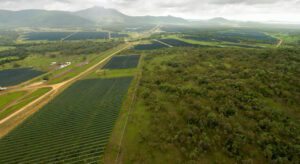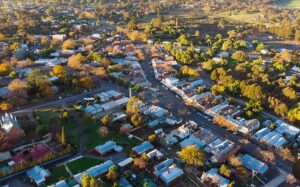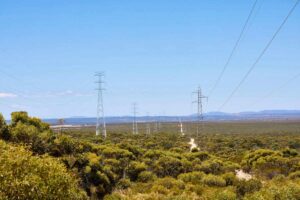Just days out from the start of the 23rd Conference of the Parties climate talks, billed as the “Pacific COP” as it will be presided over by Fijian PM Frank Bainimarama, PNG-based petroleum company Oil Search has delivered what can only be described as a slap in the face to its Pacific neighbours.
Oil Search yesterday announced that it has acquired stakes in two prospective Alaskan oilfields for US$400 million.
The ASX-listed company variously described the oilfields as “high quality” and “world class”, and complementary to its existing “exciting” growth projects in PNG.
What the company failed to mention is how the development of these assets reconcile with its commitment to an effective global climate agreement. The announcement also calls into question the value of investors seeking greater climate risk disclosure.
Earlier this year, in response to a shareholder resolution coordinated by Market Forces, Oil Search committed to implementing all of the recommendations of the Task force on Climate-related Financial Disclosures (TCFD). Oil Search Chairman Rick Lee even went so far as to commit to publishing scenario analysis incorporating both 1.5C and 2C policy pathways before next year’s AGM.
For context, no Australian company has published scenario analysis based on a 1.5C pathway.
At the time, that commitment appeared to represent climate leadership, at least in the Australian energy sector. And yet here we are, just six months later, watching the very same board approve the expansion of the oil industry by a potential one billion barrels.
In response to demands for greater disclosure of climate risk, Oil Search argued that they had a “gas-dominant portfolio and growth strategy”, and that they would “remain resilient” in a carbon-constrained world. Oil Search is effectively betting that peak oil demand is either not happening, or happening much later than its much larger peers think.
While both Shell and Statoil have argued that peak oil demand is likely to be reached before 2030, and are actively diversifying away from crude oil.
Based in PNG, Oil Search is well aware of the dangers climate change poses to developing economies. In 2016, a prolonged drought in PNG saw more than 200,000 people in need of food aid. And PNG has already begun evacuating people living on the Cartaret Islands to Bougainville, due to rising sea levels. And yet rather than taking a position of leadership and diversifying away from fossil fuels, Oil Search is seeking to exacerbate the problem further.
Oil Search’s acquisition poses difficult questions to investors. Climate risk disclosure, as recommended by the TCFD, may provide investors with greater transparency, but it certainly isn’t the panacea to tackling emissions.
Oil Search will find a way to fit this latest acquisition into a 1.5C scenario analysis, no doubt by suggesting their assets are “world class” and the lowest cost. But such analysis does nothing to assuage investors that the board of Oil Search is astute enough to steer the company down a low carbon path.
In fact, this acquisition does precisely the opposite. For Oil Search, it’s clearly business as usual. So what will investors do about it? For a start, they should demand companies produce plans on how they intend to reduce their emissions. And when a company fails to follow those plans, vote against the re-election of directors.
Author: Daniel Gocher, Analyst/Campaigner, Market Forces. Reproduced with permission.








